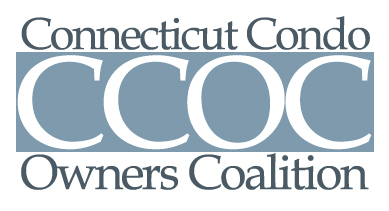Condominium Owners Whose Homes Have Foreclosure Action Maybe Helped By Supreme Court Ruling
Many condominium associations have found that their foreclosures are defective because the association failed to adopt a foreclosure rule, if no rule, failed to vote that a foreclosure be started against the unit.
The Connecticut Supreme Court has ruled that these defective foreclosures are void because state laws make voting to foreclose or enacting a foreclosure policy is required.
Those unit owners who are in foreclosure now or have had their units foreclosed need to check the records to see if they were done properly. If they weren’t the owners can have the foreclosure reopened, possibly helping them short term. It is not yet known what long term impact the Supreme Court ruling will have.
For unit owners condominium foreclosures have been hard to defeat. Courts have made the obligation to pay condominium fees almost absolute. About the only defenses have been that the claim was actually paid or that the assessment was somehow illegal.
In 2010, the Connecticut legislature amended Section 47-258 of the Common Interest Ownership Act (CIOA) to give unit owners some protection in foreclosure.
Under this Section, the Association had to satisfy three preconditions before starting a foreclosure:
- The unit owner, at the time the action is commenced, had to owe a sum equal to at least two months of common expense assessments based on the periodic budget last adopted by the Association;
- The Association must have made a written demand for payment; and
- And an association may not commence an action to foreclose a lien on a unit unless
- the executive board has voted to commence a foreclosure action against that specific unit
- or has adopted a policy that provides for foreclosure against that unit.
Attorneys have used the Association failure to satisfy these conditions as foreclosure defenses. There was a risk that the Association could fix its errors and keep the case going. This case makes it clear that the Association cannot do that. It has to instead fix its errors and start the case all over again.
The Connecticut Supreme Court decision, in the Neighborhood Association, Inc. v. Limberger, released on April 26, 2016, increased the importance of the preconditions in existing litigation. In that case, an Association had adopted a foreclosure policy but had not given the unit owners notice that the policy was being adopted either before or after its adoption. And thus the foreclosure policy was not valid.
The Connecticut Supreme Court stated that the foreclosure action had to be dismissed. The Court found that the foreclosure policy was invalid because the policy had not been adopted as a rule, with notice to unit owners.
The Court then found that a valid foreclosure policy was a mandatory precondition to a condominium foreclosure. The Court continued that the entire case had to be dismissed and was void from the beginning. According to the Supreme Court, the trial court never had the authority to even hear the case unless the precondition had been satisfied. Even though the other two preconditions were not part of the decision, it would be logical to assume that failure to satisfy them would have the same result.
The case is important because of the Supreme Court’s use of the concept of subject matter jurisdiction to conclude that the trial court did not have the authority to hear the case. If the Court never had the authority to hear a case because of subject matter jurisdiction, the case was void from the start. Upon motion, the case must be dismissed at any time up to the time of judgment.
We will have to wait for more court decisions to see what will happen to Association foreclosures. We are certain that case and the foreclosure preconditions can be used to dismiss existing Association foreclosures if the Association has not complied with the requirements. The case could even affect foreclosure actions that have already gone to judgment by permitting the cases to be reopened. The case might allow a unit owner to attack a completed foreclosure, have it overturned, and collect damages from the Association. A dismissal because of the preconditions may increase the balance owed.
This is an important decision for all unit owners, not just for those who are being or might be foreclosed.
For those owners who are being foreclosed, it allows them to get the foreclosure thrown out of court because the board had not complied with CIOA before beginning the foreclosure.
A Board of Directors not complying with the CT Statutes also forces unit owners facing “illegal” foreclosures to hire legal counsel.
For those owners who are not being foreclosed, and who may never be foreclosed, it is important because they need to make sure their board has complied with these requirements or the Association may incur unnecessary legal fees that ultimately will be paid by the Association whose budget is funded by common fees paid by all unit owners.






doing a great service. thank you. happy new year